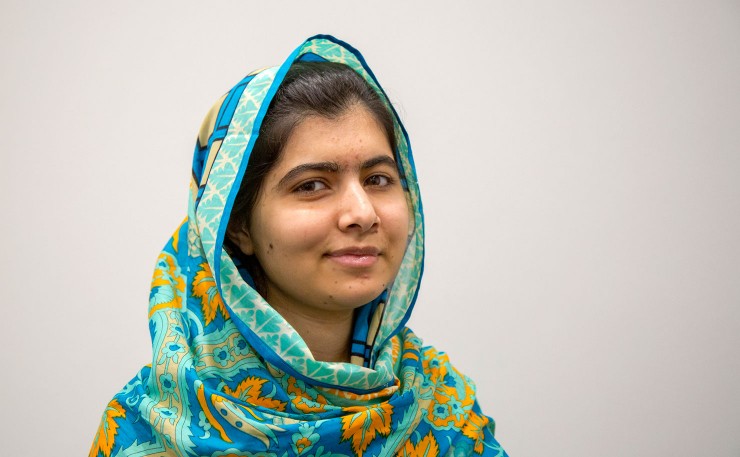In July last year, I was honoured to witness Malala Yousafzai give her first public address, one year after she was shot in the head by the Taliban for advocating for the rights for girls, like just her, to an education.
The event was the Youth Takeover of the UN General Assembly, and I was there because of my role as the Australian representative on the UN Secretary General’s Global Education Initiative’s Youth Advisory Group.
Just before the event, knowing I would get the opportunity to see the girl who the world had cried over, I spoke to my father over the phone.
He told me: “If you see Malala, tell her I’m proud of her”.
Little did I know, the very next day, I would be standing alongside this young education warrior to deliver a petition to UN Secretary General Ban Ki Moon, signed by over a million young people around the world demanding a quality universal education.
While I was beside her, I was able to deliver my father’s message to her in person.
But why is it that my father, an Aboriginal South Sea Islander man from regional Queensland, someone so far removed from the situation in Pakistan, felt such an affinity with Malala, to so personally feel pride in her achievements?
Of course, my father is not alone in this feeling. There are millions around the world, including world leaders, who share this same affinity with Malala Yousafzai.
I believe this is what makes Malala Yousafzai so special and so powerful. She is a constant reminder of how important it is to protect the innocence of a child.
She could have lost her childhood to those who shot her, yet she chose not to.
Despite the scores of column inches written about her courage and bravery, what struck me most was just how she was like any other teenage girl. I watched her at the assembly, as the buzzing died down, playing with her brother. She is extraordinary in her ordinariness.
She cuts through politics because she has a simple message, so routinely belittled by governments around the world, even my own in Australia: Everyone deserves the right to an education.
Malala returned to school and continues to be a strong advocate for education. In her words: “They thought a bullet would silence us, but they failed. Weakness, fear and hopelessness died. Strength power and courage was born”.
It is therefore fitting that at the age of 17, Malala Yousafzai has become the youngest Nobel Peace Prize winner, awarded alongside Kailash Satyarthi – A human rights activist who fights child slavery and child trafficking.
Kailash is a true advocate for education like Malala. For the thousands of child slaves he has rescued, Kailash has designed a successful education and rehabilitation program to further support them regain their childhood.
Awarding Malala Yousafzai and Kailash Satyarthi the Nobel Peace Prize is recognition of the incredible role education can play in creating a peaceful world.
In the year 2014 this is needed now more than ever.
Right now there are 58 million children out of school, for reasons like gender inequality, child trafficking, marginalisation and conflict. This comes 14 years after world leaders decided that every child should be in school and learning by 2015.
Education is the key to delivering positive outcomes across any society. It promotes self-determination, active citizenship, better health outcomes and productivity. However what’s most important is that education allows today’s children to become tomorrow’s decision makers and leaders.
As Kailash Satyarthi said in his former role as President of the Global Campaign for Education, “Children have a remarkable capacity for positivity and energy. They hold strong hopes and dreams that can, if nurtured and developed, play a huge role in forming both strong individuals and strong communities.”
As a proud Darumbal woman, I believe this is true for my own people. Solving the crisis that hounds Aboriginal communities begins with culturally appropriate education.
Aboriginal people have a right to learn in their own languages and their own homelands. They may not fear the bullets of the Taliban, but truly culturally appropriate education needs to be delivered in Australia’s own backyard.
I think of this today as I celebrate Malala and Kailash’s achievement.
Malala Yousafzai and Kailash Satyarthi have reminded us all, that in order to achieve peace, we must protect tomorrow’s leaders by acting today and ensuring that all children have access to quality education.
* Hayley McQuire is a Darumbal and South Sea Islander woman from Rockhampton in Queensland and the Australian representative on the Youth Advisory Group for the UN Secretary General’s Global Education First Initiative. She is a former youth UNICEF ambassador and is passionate about promoting education.
Donate To New Matilda
New Matilda is a small, independent media outlet. We survive through reader contributions, and never losing a lawsuit. If you got something from this article, giving something back helps us to continue speaking truth to power. Every little bit counts.




